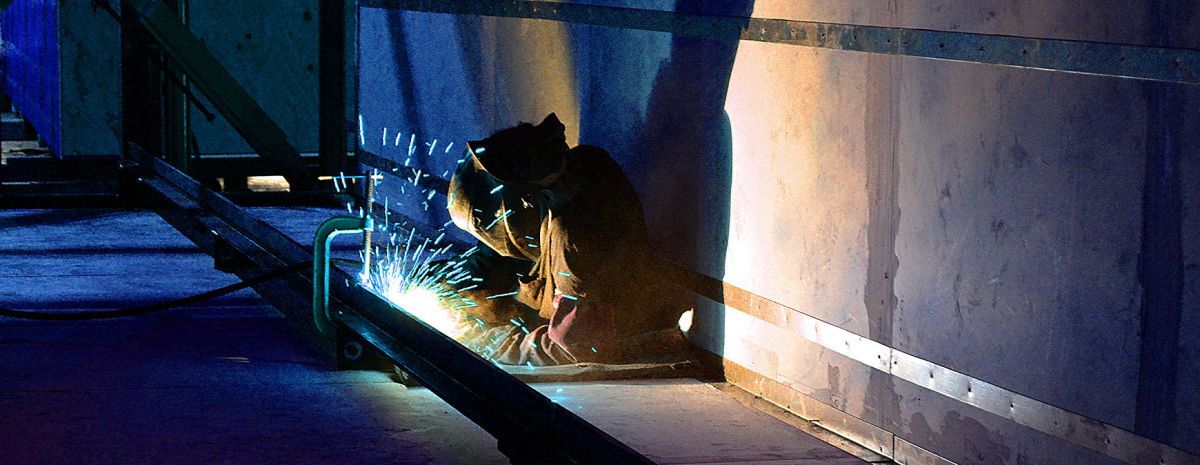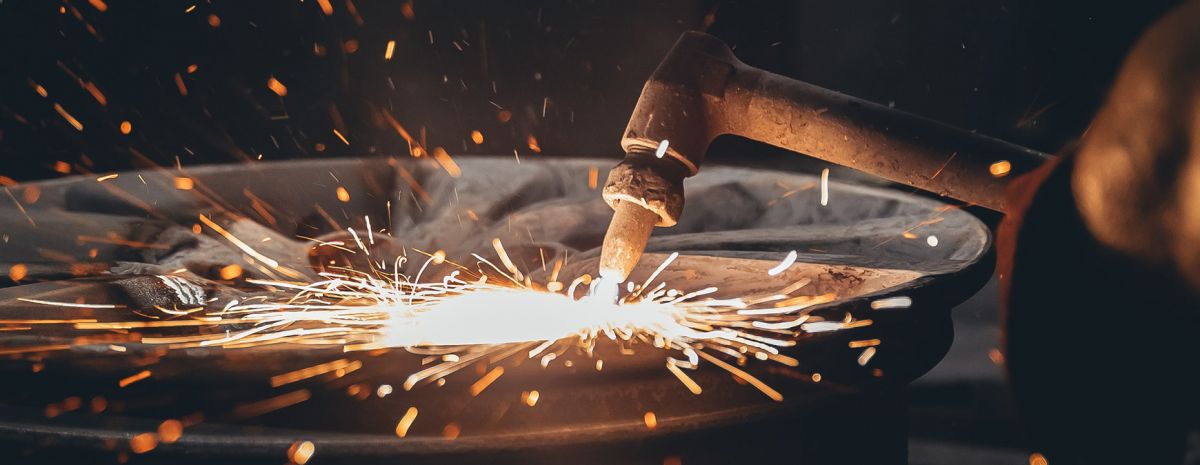
Do you need a welding certification in Arizona?
Does Arizona require you to have a welding license?
Should you learn to weld at a trade school?
These can be important questions when thinking about entering the field of welding in your state.
Get answers to them in this article.
Get Started on the Path to a New Career
Fill out our form to learn how we can help you change your life.
1. How Do I Become a Welder in Arizona?
Contractors working in Arizona generally need a state-issued contractor license.1 The Arizona Registrar of Contractors (ROC) is the administering organization that provides contractor licenses.1
Welding Training & Work Experience
But if you’ve just graduated from high school, learning to weld would likely be your first step before landing a welding job in the state. Because you’ll need welding work experience and to pass one or more exams before you could be eligible for a contractor’s license.2,3,4
Some level of technical welding training is typically required for anyone to start working as a welder.2 Many welders begin learning welding skills in high school shop class, in a vocational training program or on the job. A combination of all three types of training is not uncommon when learning to weld.2
Welding Contractor License
In Arizona, there are three main types of welding licenses:3
R-56: Residential Welding4
The Specialty Residential Contracting license for welding requires the applicant to fulfill one of the following conditions:4
- Have one year of hands-on welding experience.
- Take and pass a Trade Exam.
In either case, the licensee must also take and pass a Statutes and Rules Exam.4
C-56: Commercial Welding4
The Specialty Commercial Contracting license for welding requires both welding experience and the passage of two exams:
- Two years of hands-on experience.4
- The applicant must take and pass both the Trade Exam and the Statutes and Rules Exam.4
CR-56: Dual License4
The Specialty Dual License Contracting license allows for the scope of work covered under both the Residential and Commercial welding licenses.3 This license requires both welding experience and the passage of two exams:
- Two years of hands-on welding experience.
- Successful completion of both the Trade Exam and Statutes and Rules Exam.4
There are other licenses that may be relevant to specialty welders:3
- A-11: Steel and Aluminum Erection
- C-31: Masonry
- R-31: Masonry
2. Can You Get Certified in Welding without Going to School?

Welding licenses. Welding certifications. What’s the difference? And do you need to go to welding school for either?
Welding Certifications vs. Welding Licenses
Welding Licenses
In Arizona, you must have hands-on work experience and pass a Trade Exam in order to legally work as a welder with a contractor license.4 This work experience requirement might imply that you could work as a welder without a license. So, you’d just need the welding skills to land a job and start your welding career. Whether or not you learn them in welding school is up to you.
Welding Certifications
Welding certifications are different from welding licenses.2 While each state or municipality might have their own specific licensing requirements, certifications are typically voluntary, and are designed to show employers that a welder has a certain skillset.2,3
While attending welding school isn’t necessarily a strict requirement for all welding certifications or licenses, welders often learn their hands-on skills from a technical institution. And some trade schools help to prepare welders to take welder certification tests.2
The Refrigeration School in Phoenix, Arizona, for example, offers a Welding Specialist training program that instructs students in common welding processes, including SMAW, GMAW, FCAW and GTAW. The welding training program can be completed in as little as 7 months and is designed to help prepare students for the American Welding Society (AWS) certification test.
Some employers might also expect a welding applicant to take and pass a specific weld test to demonstrate the types of skills needed for the job.5 The advantage to getting a welding certification is that it shows employers and agencies that you have certain skillsets that are recognized by accredited welding institutions.2,5,6
3. What Is the Best Welding Certification to Have?
The American Welding Society certifications are probably the best recognized in the industry. But, ultimately, the best certification to have depends on your skills, experience and welding career goals.2
AWS offers different levels of certifications:6
- Certified Welder
- Certified Associate Welding Inspector
- Certified Welding Inspector
- Certified Welding Supervisor
- Certified Welding Engineer6
The Certified Welder (CW) program is the first level of AWS certification, as there are no prerequisite courses or certifications required.6 This level of certification is entirely performance-based, and tests welders on specific procedures used in common welding industries.6
4. How Do I Get My AWS Welding Certification?
Once you feel like you’re ready to take an AWS certification test, you will need to make an appointment at an AWS-Accredited Testing Facility.7
You must make sure that you familiarize yourself with the AWS QC7 Standard for Certified Welders, which outlines the codes, methods and practices set by the AWS.8 Review the PDF outlining the AWS Standard and bring a copy to the AWS Accredited Test Facility.7
Once you pass your AWS certification test, you must then submit a Certified Welder Application form, as well as any other supporting documentation as required.7
There are different fees associated with each application and certification.9 AWS fees are updated periodically.9 Be sure to review the current price list on the AWS website.9
5. How Long Is a Welding Certificate Good For?
AWS certifications generally last 6 months.7 This means you would need to submit a Certification Maintenance form every 6 months to keep your certification current.7
If you miss the 6-month renewal deadline, there is a 60-day grace period where the certification will be considered expired, but you can still submit a Certification Maintenance form during this time, along with a late fee.7 After that, you would need to retest to regain certification.7
An Arizona contractor license is generally valid for two years.10 Keep in mind, AWS certification and state licensing are two different yet sometimes overlapping processes, so be sure to keep track of when each certification and license needs to be renewed.
Take Your First Step with Welding Training in Phoenix
If you’re considering entering the field of welding in Arizona, reach out to a team member at RSI for more info on the school’s welding training program. We’re happy to answer any questions you and your parents may have about taking your first step toward a welding career.
Call 1-866-820-0823. Our welding campus is located in Phoenix, Arizona, so you can learn to weld in the same state you’re planning on starting a career in.
Additional Sources
1https://generalcontractorlicenseguide.com/arizona-contractors-license/
2https://www.bls.gov/ooh/production/welders-cutters-solderers-and-brazers.htm#tab-4
3https://roc.az.gov/search/node/weld
4https://roc.az.gov/sites/default/files/forms/License%20Classification%20Requirements_6.8.20_0.pdf
5https://www.weldersuniverse.com/welding_certification_tips2.html
6https://www.aws.org/certification/professionalcertifications
7https://www.aws.org/certification/page/certified-welder-program
8https://www.aws.org/library/doclib/QC7-93.pdf
9https://www.aws.org/library/doclib/2236-Price-List-202101.pdf
10https://contractortrainingcenter.com/collections/arizona-courses#:~:text=Once%20you%20are%20granted%20an,to%20ensure%20it%20stays%20accurate.
This blog has been labeled as archived as it may no longer contain the most up-to-date data. For a list of all current blog posts, please visit our blog homepage at https://www.rsi.edu/blog/

